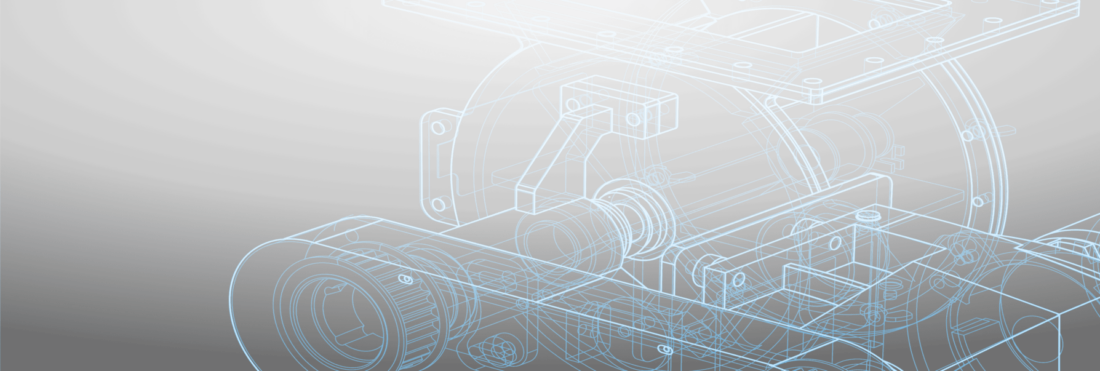
Supply chain management (SCM) is the management of materials, involving the procurement, movement and storage of raw parts and materials, as well as the movement of work-in-process inventory and finished goods from point of origin to point of consumption. Effectively managing supply chains is important for manufacturers as it helps them to reduce costs, improve efficiencies, and ensure jobs are completed and delivered on time.
The ramifications of COVID-19 have placed great strains on supply chains, especially for manufacturers, and manufacturers will need to manage their supply chains with more finesse than they have ever had to in the past.
ERP software plays a vital role in SCM and has increasingly gained popularity amongst manufacturers as a better way to manage supply chains.
In fact, according to Michael Larner, principal analyst at ABI Research: “COVID-19 demonstrates that manufacturers need to be as focused on their supplier’s capabilities as they are on their factory floor.” ABI Research forecasts that the supply chain impact of COVID-19 will spur manufacturers’ spend on ERP, to reach $14 billion in 2024.
Read on to learn how ERPs can help manufacturers better manage their supply chains.
ERPs and Supply Chain Management
ERP solutions are an integral part of managing supply chains and ensuring that manufacturers are able to respond to market fluctuations. ERPs offer a holistic view of all business operations to improve supply chain management.
SCM has always presented unique challenges to manufacturers, especially custom manufacturers. It’s rare for a manufacturer today to work with only a handful of selected suppliers, and instead most custom manufacturers turn to a complex network of suppliers to find the best vendor who can deliver high quality parts and materials both at a low cost and on time.
ERPs help manufacturers improve their SCM in many ways including:
- Integration of internal business processes;
- Enhancement of information flow among different departments inside the company;
- Better inventory management;
- Improvement of the company’s relationships and collaboration with outsourcing suppliers, customers, and supply chain partners;
- Streamlining purchasing processes;
- Increasing a manufacturer’s ability to evaluate vendors;
- Efficiently manage complex supply chain networks.
Improving supply chain logistics can lead to substantial cost reductions, which in turn can improve profitability, but will also lead to an increase in efficiency, and help manufacturers to complete jobs on time.

1. Global Visibility
ERPs act as a “one-stop shop” and provide manufacturers with a holistic, consolidated view of their entire supply chain, allowing manufacturers to make better-informed purchasing and procurement decisions. Managers and executives are given a greater oversight into every part of the supply chain, and are better able to identify problems or issues with their supply chain, and then are able to work to find solutions more quickly.
ERPS also provide manufacturers with details about how and where their own inventory and work-in-progress jobs are located, making it easier for them to respond to customers with greater confidence about their orders — remember SCM includes moving goods to the point of consumption too.
2. Inventory Management
ERP systems give manufacturers a comprehensive inventory tracking system to help them control and manage their inventory and product stock. This means manufacturers can organize and categorize their inventory, better manage detailed warehouse data, and record various product movements. This provides supply chain managers with a greater understanding of what inventory is on hand, what has been shipped out, what hasn’t, and where the inventory is at all times.
ERP inventory management systems also make it easier to know what raw materials have been consumed, what on-hand materials have already been assigned to a specific job, and what items are low or out of stock — making it easier to know when new purchase orders have to be placed, increasing the efficiency of the purchasing department.
3. Vendor Performance
ERP systems make it easier for manufacturers to measure quantitative and qualitative factors of respective vendors — to help in making better, more-informed business decisions and performance improvements within the current market. With an ERP it is easy to compare vendors based on quality, price, and delivery dates to ensure they always pick the right vendor for the job.
Manufacturers will also Increase the negotiating power of their purchasing department by aggregating purchase orders.
4. Procurement
An ERP also offers a more effective way to manage procurement and supply of goods, and other resources needed by a manufacturer, which is especially important in custom manufacturing.
Purchasing in a custom manufacturing environment is complicated: Unlike in more standardized manufacturing environments, raw materials and parts are not required in a consistent or straightforward manner in custom shops.
Coupled with the need to procure items with long lead-times, that often need to be ordered before a product has been fully designed and engineered, purchasing in custom environments is stressful — and often the purchasing department is blamed for delays and issues that are not their fault in the making — leading to unnecessary contention and conflict in custom manufacturing shops.
Not only does an ERP do everything from handling manufacturing and warehouse resources to managing transportation and execution processes, several manual tasks such as communicating with vendors and suppliers and keeping track of the communications can easily be automated with ERP.
ERPs also integrate the purchasing department with the rest of the shop, including with the engineering department, making it easier for purchasers to know what is needed and when — including long-lead items. This allows the purchasing department to operate in tandem with the rest of the shop, and for goods to be procured in a timely manner.
5. Real-Time Reporting
Creating manual reports always runs the risk of less reporting frequency because of the labor intensive process required to gather data, which leads to poor decisions because they are made based on out-of-date and/or inaccurate information.
When manufacturers use the business intelligence features, including the real-time data and reporting features of an ERP, they get access to relevant, real-time data about the company’s and supply chains’ performance. This allows decision-makers to keep better track of the movement of products/inventory, and the ability to use this streamlined data to make better and more informed decisions to improve operational efficiencies.
6. Materials Requirement Planning
Materials Requirement Planning (MRP) refers to the planning, scheduling, and inventory control systems that manage the manufacturing process, and are important to the smooth operation of a manufacturing business. ERPs include and go beyond MRPs— connecting and integrating all the different aspects of a business into one database, allowing manufacturers to streamline tasks and processes, as well as share error-free information across their entire organization.
An ERP system powers manufacturing businesses with accurate data, and helps them to increase efficiencies and reduce costs across their entire organization. An ERP provides a comprehensive management system that allows for integration of transactions, material planning, and other functions into a single system — making it easier for manufacturers to better manage all their operations including their supply chain.
Get the ERP Built for Custom Manufacturers
Genius ERP is built specifically for small- and mid-sized custom manufacturers. Over years of industry experience, our ERP system has been fine-tuned to meet the unique demands of custom manufacturers.
Genius ERP includes many standard features of ERPs including accounting, inventory management, and a vendor management system that helps manufacturers keep on top of their businesses. But it also includes unique features and functionalities that custom manufacturers need to deal with their unique manufacturing challenges — and best manage their supply chain.
Get your eBook Scared to implement a new ERP?
"*" indicates required fields



